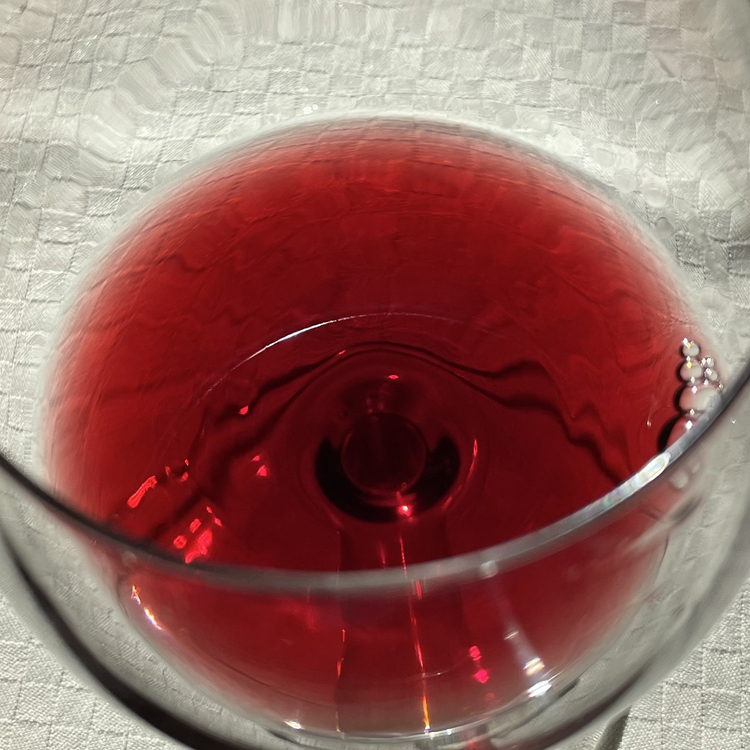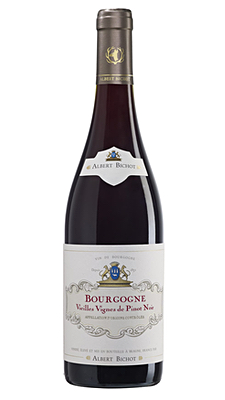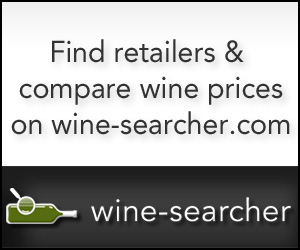I hope all our U.S. readers enjoyed an excellent Thanksgiving Day with family, friends, good food, and exceptional wine.
But wait! Now you’ve got a headache?
Give a Wine Gift with EXTRA Wine
Black Friday Savings for you: Give 3 shipments (or more) of delicious, handcrafted wine, and The California Wine Club will add on an extra month on them. $59 value! Shop Now.
• This week’s paid-tier edition – my report on a quality Bourgogne Pinot Noir – goes out as a Thanksgiving week gift to the entire community. Like what you see? Consider upgrading to our paid tier and join us every week! Already a paid subscriber? Thanks so much. You help make this happen. Click here to subscribe.
Many wine lovers avoid red wines as a potential headache trigger. Assuming over-consumption is not the issue, sulfites or histamines usually get the blame for this unfortunate effect.
My standard response has gone something like this: “If you get a headache or a stuffy nose after drinking wine – especially red wine – you may be allergic to the histamines in some red wines, or in the case of hangovers, simple over-indulgence. But it’s not the sulfites.
Sulfites are used in almost all wines as a natural preservative, and only a handful of people suffer a life-threatening allergy. But even though sulfites are innocuous for the rest of us, they provoke a lot of fear and blame because of an ill-considered warning label slapped on all wines in the U.S. since the late 1980s. Unless you’ve been diagnosed by a doctor as sulfite-sensitive, you can and should ignore this warning.
The case against histamines and other chemicals called polyphenols in wine appears much stronger. It’s a hypothesis supported by abundant research, and it seems logical since many people take antihistamines to address allergic symptoms. Some wine enthusiasts actually take one before enjoying wine, but that’s a bad idea. Here’s why.
So, wine is good, but wine headaches are bad, and histamines make the symptoms worse? That seems clear enough. Until now. In a study published this past Monday in the journal Nature, scientists from the University of California at Davis presented a new hypothesis …
(The Wine Advisor continues below this message from our friends at The California Wine Club.)
Give a Wine Gift with EXTRA Wine
Black Friday Savings for you: Give 3 shipments (or more) of delicious, handcrafted wine, and The California Wine Club will add on an extra month on them. $59 value! Shop Now.
When quality matters, give gifts from The California Wine Club. Each gift shipment will bring two award-winning, handcrafted wines from one of California’s best small wineries. A different winery is featured every month.
• Plus, holiday gifts include:
• Beautifully hand-wrapped bottles.
• Uncorked®, a guide to the featured wineries.
• A $25 Wine Credit.
• A VIP winery tour and tasting invitation.
See Cyber Gift Sale
Cyber Gift Sale ends at 11:59 p.m., PST, December 4, 2023.
About The California Wine Club
California is home to thousands of small family wineries handcrafting extraordinary wine in quantities too limited to be found in local stores or shops. Since 1990 it has been The California Wine Club‘s mission to help these artisan wineries introduce their award-winning wines to wine lovers across the U.S. Learn more.
www.cawineclub.com 1-800-777-4443
In the news: Red wine and headaches
(Continued)
… “The consumption of red wine induces headaches in some subjects who can drink other alcoholic beverages without suffering,” wrote UC Davis researchers Apramita Devi, Morris Levin, and Andrew L. Waterhouse. “The cause for this effect has been attributed to a number of components, often the high level of phenolics in red wine, but a mechanism has been elusive.” Based on their studies, the scientists pointed a collective finger at the polyphenol flavonoid quercetin in red wines. Still, they acknowledge, testing on human subjects will be needed to confirm or disprove this hypothesis.
With the story coming out at the beginning of the winter holiday season, with its traditional focus on feasting, food and drink, it didn’t take the news media long to jump on it. “Get headaches from drinking red wine? Study offers clue about why,” headlined a CNN report on Wednesday. The New York Times weighed in with an extensive Science Times report by writer Dana G. Smith headlined “The Science Behind the Dreaded Red Wine Headache: Is it sulfites, tannins or another culprit? Here’s what the research says about the migraines some people get with a glass of merlot.” Here’s a gift link that will take you through The Times’ paywall.
The University of California’s public-relations teams pushed the story out, with separate, detailed reports from UC Davis and from UC at San Francisco.
Finally, if you prefer to dig into primary source material, here’s a free link to the full report in Nature.
At the end of the day, there’s particular irony in suspicion turning toward quercetin, one of the much-praised flavonols – antioxidants – that are widely believed to contribute to red wine’s purported benefits in staving off cardiovascular disease and heart ailments. Does this mean that the new report is telling us, “We’ve got some good news, and we’ve got some bad news”?
Well, maybe. Still, it’s always prudent to remember that a hypothesis is a step short of a theory and several steps shy of established fact. “A hypothesis is an assumption made before any research has been done. It is formed so that it can be tested to see if it might be true,” says Merriam-Webster.

Could the light color of this Bourgogne Pinot Noir suggest that it is lower in polyphenol flavonoids?
Maybe, maybe not.
If you’re subject to red-wine headaches, this report doesn’t suggest any immediate change in the way you currently deal with the issue. You may choose white wine in favor of red. “Two studies have shown that the content of quercetin and other similar substances in white wines is one-tenth of the level in red wines.
“Switching to white wine may be an option,” UC San Francisco suggested in its story on the Nature report. You may also find that lighter-bodied or less intensely purple red wines may lessen the impact for you. A lighter-style Burgundy like today’s featured wine may serve you better than a dark Napa Cabernet, for example; a basic Chianti in preference to a fancy Super Tuscan; or a Beaujolais or a Dolcetto.
If you have dealt with red-wine headaches and found a workaround – or haven’t – I’d love to hear your reports. Feel free to click the Comment buttons on our Substack edition, or post your comments on our WineLovers Facebook Page or in our online WineLovers Discussion Group (WLDG).
Today’s Tasting Report
Albert Bichot 2020 Bourgogne Vieilles Vignes de Pinot Noir ($26.99)
Typical of Bourgogne Pinot Noir, Albert Bichot Bourgogne Veilles Vignes de Pinot Noir is an attractive ruby color, not too dark. Raspberry and strawberry aromas at first, with elusive hints of cranberry and pomegranate joining in. Mouthwatering acidity frames appetizing red fruit flavors that follow the nose. Tannins are present but muted, showing as soft astringency in the long finish. Flavors open up after 15 to 30 minutes in the glass. 13% alcohol. U.S. importer: Albert Bichot USA LLC, Henrico, Va. (Nov. 23, 2023)
FOOD MATCH: The producer suggests it as a good match for roasted or grilled meats, poultry, vegetables and mild cheeses, and I agree with those broad categories. It was excellent with a Thanksgiving feast including roast turkey and traditional and not-so-traditional side dishes.
WHEN TO DRINK: Pinot Noir’s aging curve can surprise everyone, but at the Bourgogne Pinot Noir level it’s good advice to drink it up within five years of the vintage.
VALUE:
At my local $27 price tag and Wine-Searcher.com’s $29 average U.S. retail, this wine is fairly priced for Bourgogne Pinot Noir.
WEB LINK:
Here is Albert Bichot’s English-language page on this wine, labeled as “origines” rather than “vieilles vignes.”
FIND THIS WINE ONLINE:
Check prices and find vendors for Albert Bichot Bourgogne Veilles Vignes de Pinot Noir on Wine-Searcher.com.
Read about Domaines Albert Bichot at this Wine-Searcher link, where you’ll find vendors and prices for Bichot’s portfolio.
Follow this Wine-Searcher link to learn more about Bourgogne Rouge and find listings for dozens of other wines of this appellation.
Find the wines you want
Explore Wine-Searcher
Wine-Searcher.com is the place to go online if you want to find where to buy a particular wine that interests you. What’s more, Wine-Searcher.com offers so much more. It’s well worth a visit just to discover its many features, including its popular list of the world’s Top 10 Best Value Wines.






